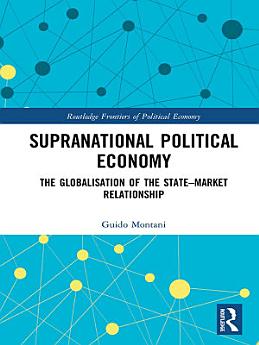Supranational Political Economy: The Globalisation of the State–Market Relationship
About this ebook
As an alternative, this volume argues for a form of global governance that will offer a better balance between politics and economics, based on a supranational approach. A supranational approach in which world powers and UN member states can work in agreement would follow the principle on which European political and economic integration was built. The system put forward here is based on a Keynesian world clearing union and a reform of the World Trade Organization and a United Nations budget, which would accelerate the convergence of rich and poor countries in the aim of a more sustainable global system. This book demonstrates that globalisations and today’s ecological challenges are both a cause of social discontent and an opportunity. Supranational institutions can greatly increase our ability to address global risks, and this book shows how a 'supranational' world order could reduce the uncertainty of the transition from the post-war order to the future multipolar order.
The supranational principle enables us to view globalisation, world capitalism and the ecological crisis not only as causes of inequality, poverty and social instability, but also as processes that can be governed. Wise politicians and political parties cannot let the future of humanity be decided by the precarious equilibrium of the Westphalia system. In post-war Europe a group of nation states, once fierce enemies, embarked on a process of integration which led to the abolition of inter-European national borders. With supranational global governance, the same could be achieved in the global system.
About the author
Guido Montani is a Professor of International Political Economy at the University of Pavia, Italy. He has published several papers on the theory of value and distribution in classical political economy and many books and papers on the theory of economic and political integration in Europe and in the global economy. He is also an Honorary Member of the Union of European Federalists.





